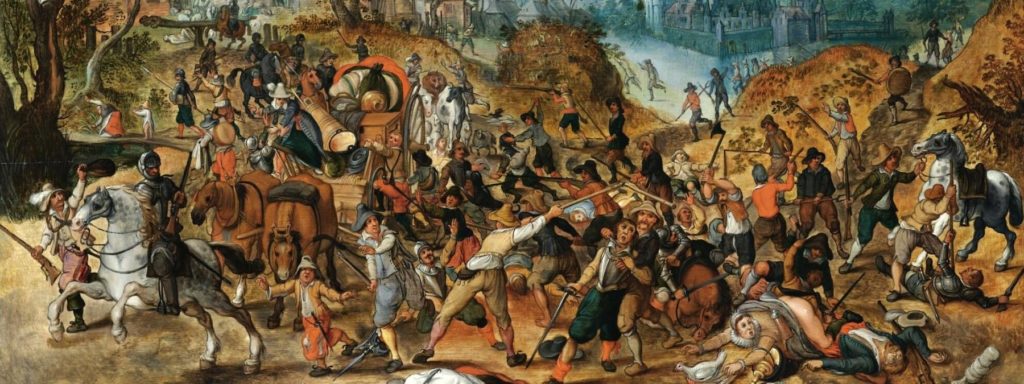Neo-liberal capitalism is nihilist at its core. That’s not news. Its global extraction and built-in exponential growth through GDP will eventually turn the earth into nothing. Neo-liberal capitalism rejects value-based judgement and destroys the life-creating potential of humans and nature. It eliminates the cycle of death you find in nature; nature’s death is life-generating through its cycles and seasons. Neo-liberal capitalism is not in-tune with these cycles and fails to regenerate in the same preciseness as nature (turns raw material into waste piles, chemical spills etc.). This produces a destructive nothingness that only neo-liberal capitalism, with its lack of ethics and morals, enjoys and celebrates.

While fashion is just one prominent example, this type of nihilism is baked into most successful products under neo-liberal capitalism. Ultra-processed food is another example of something that is not healthy for the consumer that purchases it and often comes from a supply chain built on exploitation. Western medicines are another area with crazy profit margins and the medicines are often based on artificially created needs such as the opioid crisis in the US.
Because it helps to turn over even more profit for corporations and wealthy individuals, we keep getting targeted through ads, influencers and lobbying against laws that would regulate ads, corporations and influencers. With products based on planned and perceived obsolescence, supply chains built on exploitation, suffering and a significant transfer of wealth ($152tn dollars) from the global south to the global north, citizens in the global north can afford to consume all these products.

Under capitalism, global GDP needs to keep growing by at least 2% or 3 per year, which is the minimum necessary for large firms to make aggregate profits. That might seem like a small increment, but remember, it’s an exponential curve, and exponential curves have a way of sneaking up on us with astonishing speed. Three per cent growth means doubling the size of the global economy every twenty-three years, and then doubling it again from its already doubled state, and then again, and again. This might be OK if GDP were just plucked out of thin air. But it’s not. It is coupled to energy and resource use, and has been for the entire history of capitalism.
The need for GDP growth is one of the reasons for neo-liberal capitalism’s endless exploitation of humans, nature and soon enough; outer space.
So why is it almost impossible for most citizens of the global north to break out of this while most citizens are aware of its destruction?
There are many reasons why it’s so hard to break the bond with neo-liberal capitalism. When the dominating economic system in the world disregards any form of ethics and morals, it leaves people with endless choices through consumption. Every society has ethics and morals, but these are constantly under threat because of the pursuit of growth.
The citizens that can extract the most with the no concern about ethics and morals will be the ruling class of society. By moving most of its production abroad and essentially outsourcing the whole working class to the global south, it abstracted away the suffering of workers and natural resource exploitation.
Neo-liberal capitalism was built on the Christian separation of man and nature, this opened up the possibility for endless exploitation of natural resources and humans. This is not to blame Christianity for everything because similar exploitation happened even in some indigenous societies through slavery and resource exploitation. However, it was nothing in terms of the same scale as what started in colonial times. The quote from Graeber and Wengrow gives an insight into the dynamics that causes slavery.

David Graeber and David Wengrow in The Dawn of Everything:
Since this book is mainly about freedom, it seems appropriate to set the dial a bit further to the left than usual, and explore the possibility that human beings have more collective say over their own destiny than we
ordinarily assume. Rather than defining the indigenous inhabitants of the Pacific Coast of North America as ‘incipient’ farmers or as examples of
’emerging’ complexity – which is really just an updated way of saying they were all ‘rushing headlong for their chains’ – we have explored the possibility that they might have been proceeding with (more or less) open eyes, and found plenty of evidence to support it.
Slavery, we’ve argued, became commonplace on the Northwest Coast largely because an ambitious aristocracy found itself unable to reduce its free subjects to a dependable workforce. The ensuing violence seems to have spread until those in what we’ve been calling the ‘shatter zone’ of
northern California gradually found themselves obliged to create institutions capable of insulating them from it, or at least its worst extremes. A schismogenetic process ensued, whereby coastal peoples came to define themselves increasingly against each other. This was by no means just an argument about slavery; it appears to have affected everything from the configuration of households, law, ritual and art to conceptions of what it meant to be an admirable human being and was most evident in contrasting attitudes to work, food and material wealth.

From: The Historical Roots of Our Ecological Crisis, Lynn White. 1967. Science 155: 1203-1207:
Especially in its Western form, Christianity is the most anthropocentric religion the world has seen. As early as the 2nd century both Tertullian and Saint Irenaeus of Lyons were insisting that when God shaped Adam he was foreshadowing the image of the incarnate Christ, the Second Adam. Man shares, in great measure, God’s transcendence of nature. Christianity, in absolute contrast to ancient paganism and Asia’s religions (except, perhaps, Zorastrianism), not only established a dualism of man and nature but also insisted that it is God’s will that man exploit nature for his proper ends.
Neo-liberal capitalism opens up to further exploit the separation of man and nature by increasing living costs, eroding workers’ rights, increasing exploitation of nature and humans, increasing tax evasion and centralising capital in the hands of a few. It turns society further into a consumer society where consumption of anything that can be transacted (software, sex, emotions, intellectual thought, water, air, experiences and art) is what is supposed to provide you with freedom, life quality and meaning. This becomes a highly individualized society where citizens must navigate their morals and ethics regarding nature, other humans and consumption on their own.

Breaking out of this cycle becomes harder for citizens of the global north as they get older. They accumulate debt (through mortgages, student loans and consumer loans) and get accustomed to consumption habits that are hard to break out of because they provide the comfort of life that most humans seek as they age. They also get children that they need to provide for which often comes with materialistic needs fed to them through ads, influencers etc. This creates a dangerous dependence on the ruling class that will happily offer anything that can be consumed. This might be one of the reasons why hardly anyone from the baby-boomer generation arranges a climate strike right now.

Breaking out of this habit happens through recessions and opposition, but a reconfiguration of neo-liberalist capitalism can happen during a recession. The sophistication of targeting its citizen’s habits gets amplified, the living costs increase to force workers to work more, and the extraction of human labour and natural resources intensifies. This is because companies need to survive and turn over profit to their shareholders and countries need GDP growth for military spending etc. Neo-liberal capitalism depends on growth; if it does not grow, the economy will enter a recession. The government will bail out banks and corporations during a downturn and introduce stimulus packages. An example is the Economic Stimulus Act of 2008, a $152 billion stimulus designed to help stave off a recession. The stimulus package kick-started the GPD growth machine and opened up for further exploitation until this year’s crash.

Basic living
The ruling class controls the living cost in the global north through politics and corporations. Nothing is free (rent, electricity etc.), and you are forced to work to provide for basic living costs. Corporations depend on growth, so they are incentivised to increase living costs and force workers to turn labour into profit.
Regulating neo-liberal capitalism only lessens the pressure on the workers. At the same time, outsourced exploitation and overconsumption stay more or less the same (it might even increase! Norway generates the most electronic waste in the world while being considered a social democratic state).
There are many ways to reject neo-liberal capitalism. Focusing on the ways that lead to less pressure on humans and natural environments is essential. There’s a collective, communal and individual approach to undoing nihilism and neo-liberal capitalism. They can co-exist, and all of them can be applied in your daily life.
The collective approach is to encourage the abandonment of GDP and introduce heavy regulations through politics. This would be the Degrowth approach. The individual responsibility here is to join political parties supporting that, striking through unions and participating in civil disobedience through, for example, extinction rebellion or a similar organization. However, democracy is constantly under threat by neo-liberal interests so applying both the communal and the individual approach is a good idea.
The communal approach is to aid in helping each other to follow the list below. This can be done by creating groups and assisting each other to be less dependent on the ruling class.
The individual approach is to free yourself from the ruling class by:
- Lowering your debt, stopping overconsuming and limiting spending as much as possible.
- Get control over your living costs. Try to reduce them as much as possible incl your dependence on water, electricity, insurance, housing etc.
- Encouraging a set of personal morals and ethics that support climate action and the unification of humans and nature.
- Lower your dependency on the living standard by changing your worldview from one based on greed for experiences, life quality and life expectancy to one based on immaterial joy and presence.
- Limiting the encouragement of trends and fashion to your peers. Trends and styles (in any industry) encourage planned and perceived obsolescence and overconsumption.
- Reject modernist and post-modernist approaches to emotions, consumption and life itself.
- Recycle, reuse what you can, and rethink your relationship to the objects around you today.
- Remove yourself from as many apps and platforms as possible. You will be forced to have a digital life in today’s society, so you must maintain some of it; choose wisely.
- Work with nature instead not against it.

The individual approach will lead to a recession if enough people follow this example in the global north. That’s why both the collective and the individual approaches are essential to follow. Saying that you have no choice (in the global north) is only because you either have been forced or have taken a choice to lock yourself so deep into neo-liberal capitalism that you cannot escape. Anyone from working-class citizens to upper class can apply these actions in their daily life (to a varying degree of course). It will affect material life quality and perceived life quality, but that is only because the definition of life quality is measured in life expectancy and material wealth.
Leave a Reply